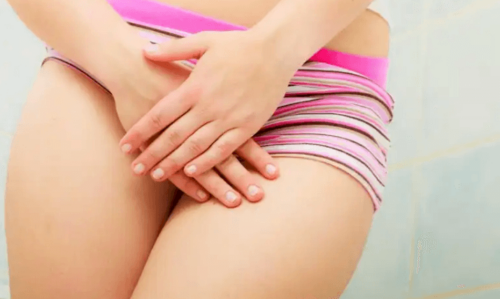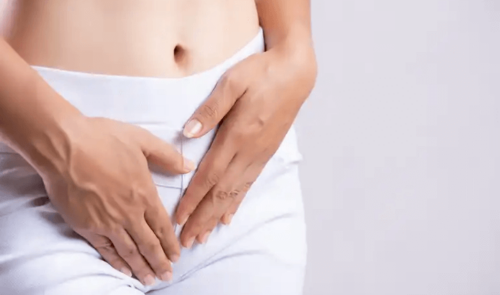5 Weird Things that Might Happen After Having Sex


Reviewed and approved by the psychologist Bernardo Peña
Most of us were anxious to know how we would feel like after having sex for the first time. Our friends described it as magical and something we’d have to experience for ourselves. But what exactly happens after having sex?
In this article we’ll tell you about some of the weird things that can happen after having sex. What are the causes and what you can do about them, if anything.
The expectations that surround sex make us consider it a special and magical moment when, in reality, it isn’t. Once experienced, the first time loses all the magic we expected.
The first time we undress before someone we feel shy and insecure. Also, sexual intercourse can be somewhat uncomfortable and painful for women.
In fact, sex isn’t as romantic as it seems in the movies. All the beliefs we had around it, the subject of this study, fall apart.
Five weird things that happen after having sex
Certain things that can scare us for a moment happen after sex. Today we’re going to tell you about them and you’ll also discover the reasons why they happen.
1. Burning and itching when you pee

This is a concern among women who are just becoming sexually active because they are often worried it could be a sexually transmitted disease or another serious problem. This isn’t so, though. Symptoms of a sexually transmitted disease (STD) don’t appear immediately after sex, but rather after a day or two.
The female anatomy consists of the vaginal opening, and positioned above, is the exit of the urethra. This area can be irritated by the rubbing of a condom, the penis, or by the use of artificial lubricants. This can cause burning and itching when urinating.
Opt for a test if you have doubts about a possible contagion of an STD to rule it out.
2. Need to go to the bathroom
Many women are embarrassed to talk about this. As soon as they have just had sex, or during them, they feel the urge to pee. This is because during vaginal penetration the penis or fingers can touch and stimulate the G-spot and it makes you want to go.
At no point should this make you think you’ll actually pee during sex; if anything, you’ll squirt. Don’t feel bad though, it’s good to pee after having sex. This is because it decreases your risk of bladder infections, especially if you’re prone to them.
3. Light blood spotting after sex
Approximately 1 out of every 10 women experience light vaginal bleeding after having sex. The bleeding usually stops within a day or two, though.
We all know it often happens after the very first time, but it can happen later in life, too. Rough sex, excess friction, and a lack of lubrication are some of the most common causes and don’t pose a serious risk to your health. However, there are other causes that are dangerous and require immediate medical attention.
The quickest solution is to rest for a little while or to take it slow during sex. Do be worry if the bleeding doesn’t stop within a day.
Check out this article How to Treat Low Libido in Women
4. Pain in the lower abdomen

This is another unusual thing that can happen after sex. This type of discomfort can be due to several causes. Consult a doctor if it doesn’t go away.
Pain after sex isn’t a sign of disease. It’s due to the fact that you don’t perceive discomfort during the love encounter due to the speed of the rhythm.
After an orgasm, slight pelvic discomfort develops. It can be due to the colon’s pressure after receiving the impact of the moves.
The heavy activity can cause muscle tension in the pelvis. When excited, it contracts, and when subjected to this force, it causes pain.
The pain can also be the result of damage to the vaginal walls from a lack of proper lubrication during coitus.
5. Mood changes
It’;s common to feel happy and satisfied after having sex and reaching orgasm. It’s quite pleasant and so it makes you feel calm and relaxed.
However, not all people experience this. There’s something called postcoital dysphoria syndrome (PCS). Furthermore, some people experience sadness and even feelings of guilt and low self-esteem, among other feelings.
Postcoital sexual dysphoria is more common than you might think but, if it becomes recurrent, it’s clinically a syndrome.
There are several explanations as to why it may occur. According to some reviews, some cases are positively correlated with psychological distress. But, others think it may be due to a hormonal process. One that temporarily affects the functioning of the amygdala.
In any case, if you feel it’s affecting your sex life or your relationship, consult a medical or psychological. You might need to undergo therapy.
What’s weird after having sex at first eventually becomes normal
You can feel all sorts of weird things after having sex. Furthermore, some manifest at the beginning of your sexual life but normalize after a while and the discomfort goes away. Or, you just get used to it all.
As you explore the sexual world, you slowly become used to the weird things that happen after having sex. Generally, they tend to be more frequent when there’s no proper arousal and, thus, lack of lubrication.
If it’s too hard for you to attain the right level of lubrication, you can use a quality lubricant. The best ones are water-based. Ok so, what are the weirdest things you’ve ever experienced after having sex?
All cited sources were thoroughly reviewed by our team to ensure their quality, reliability, currency, and validity. The bibliography of this article was considered reliable and of academic or scientific accuracy.
- Gil, V. (2019). Disforia postcoital sexual en la vida conyugal. Revista Desexología, 8(1), 77-81. https://www.researchgate.net/publication/334233529_Disforia_postcoital_sexual_en_la_vida_conyugal
- Centros para la Prevención y Control de Enfermedades. (20 de septiembre de 2023). Vaginosis bacteriana: Hoja informativa básica de los CDC. https://www.cdc.gov/std/spanish/vb/stdfact-bacterial-vaginosis-s.htm
- Clínica Mayo. (17 de septiembre de 2022). Relaciones sexuales dolorosas (dispareunia). https://www.mayoclinic.org/es/diseases-conditions/painful-intercourse/symptoms-causes/syc-20375967
- Puerta, J., & Cardona, W. (2013). Alergia al plasma seminal humano: ¿mito o realidad?. Revista Chilena de Obstetricia y Ginecología, 78(3). https://www.scielo.cl/scielo.php?script=sci_arttext&pid=S0717-75262013000300005
- Shah, A., & Panjabi, C., (2004). Asthma, Hypersensitivity, and Coitus. American Journal of Respiratory and Critical Care Medicine, 170(10). https://www.atsjournals.org/doi/10.1164/ajrccm.170.10.950
- Sayin, U. (2011). Altered states of consciousness occurring during expanded sexual response in the human female: preliminary definitions. Neuroquantology, 9(4). https://www.researchgate.net/publication/260385774_Altered_States_of_Consciousness_Occurring_During_Expanded_Sexual_Response_In_The_Human_Female_Preliminary_Definitions
This text is provided for informational purposes only and does not replace consultation with a professional. If in doubt, consult your specialist.








